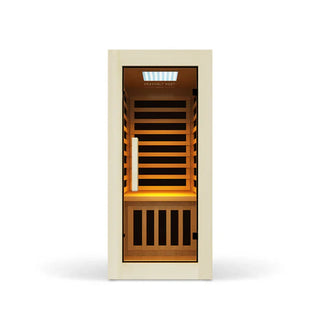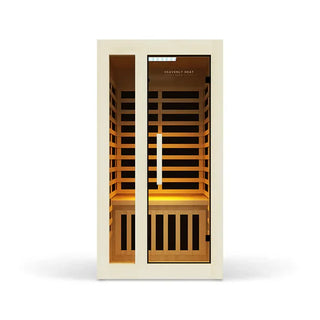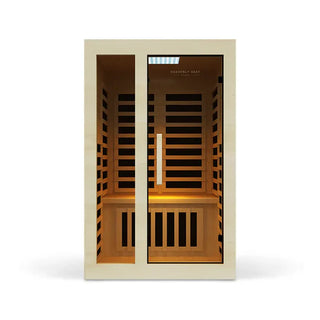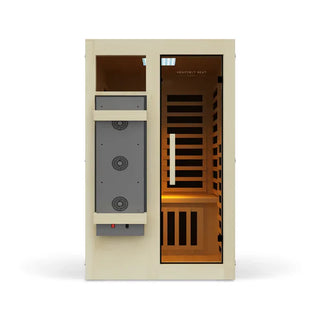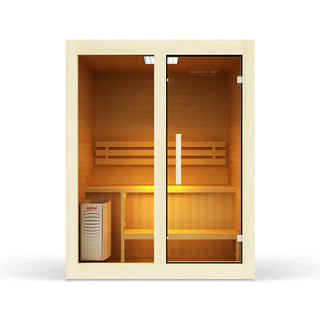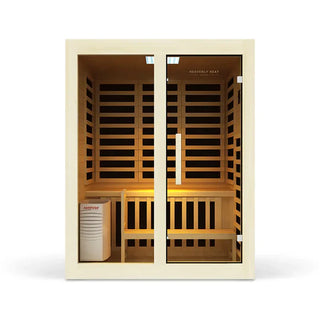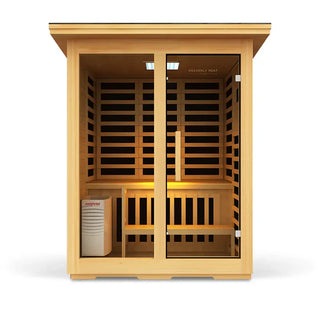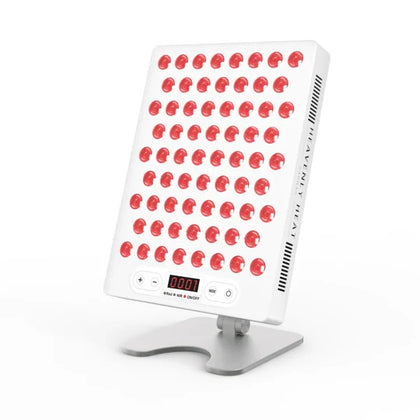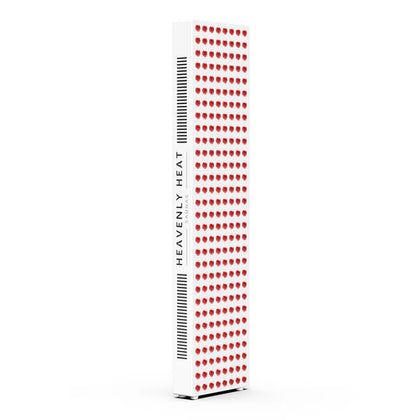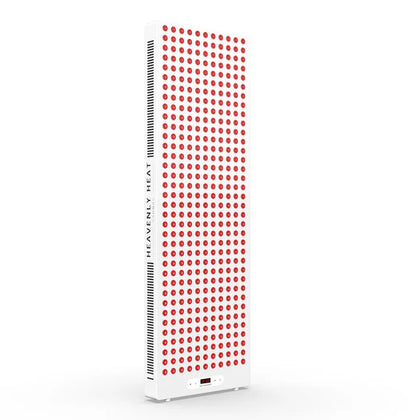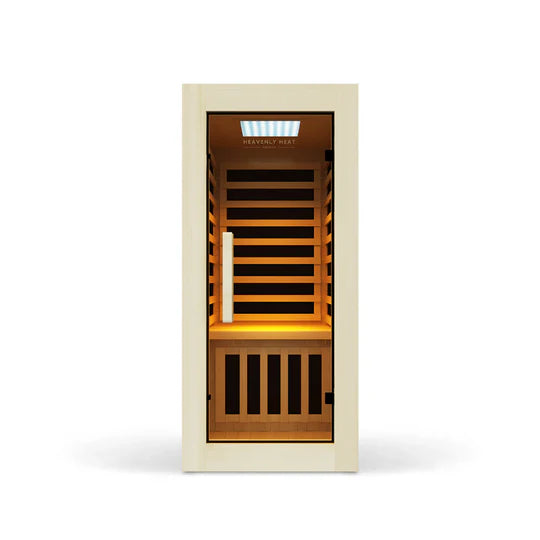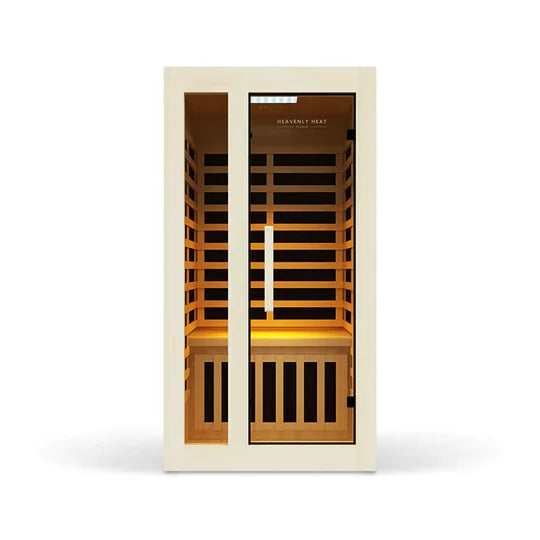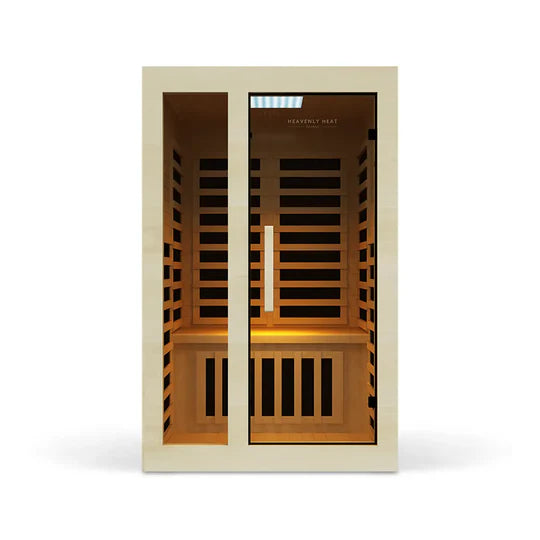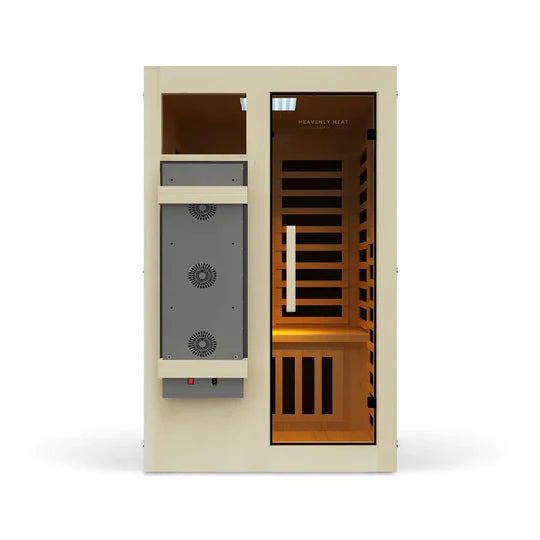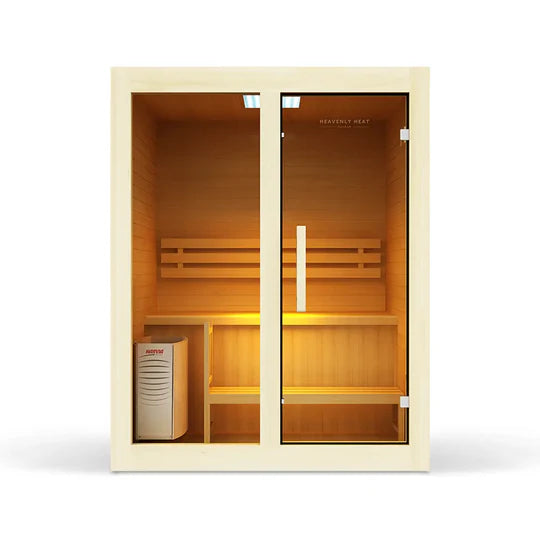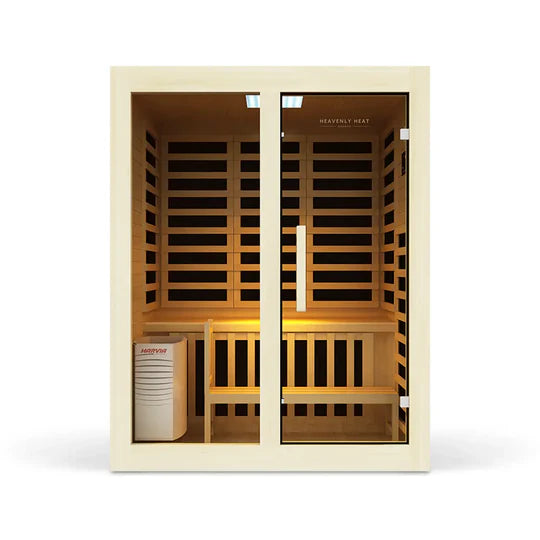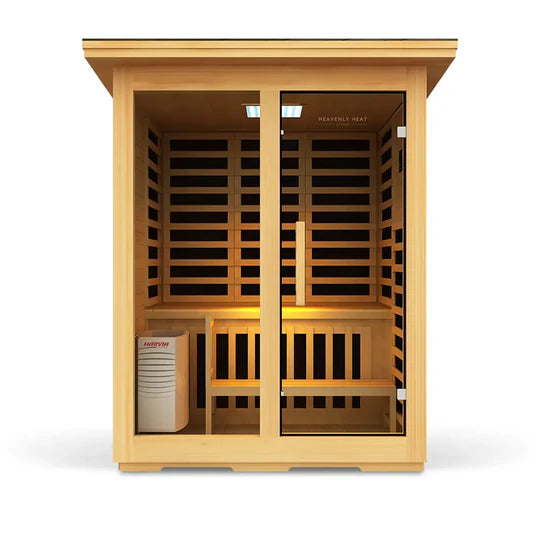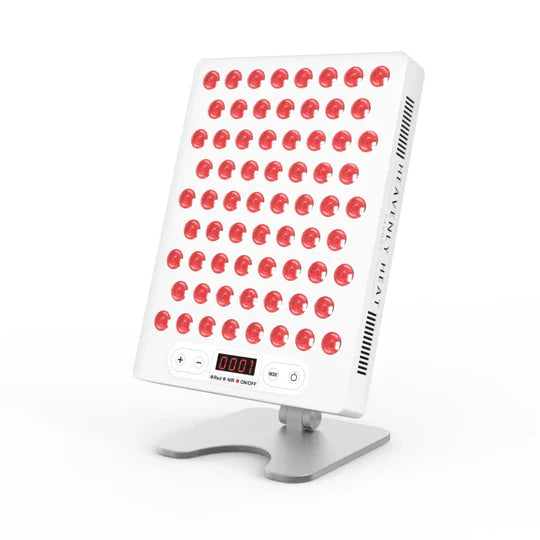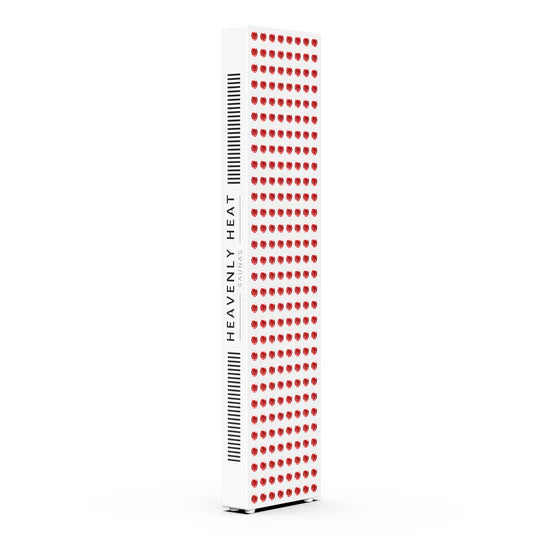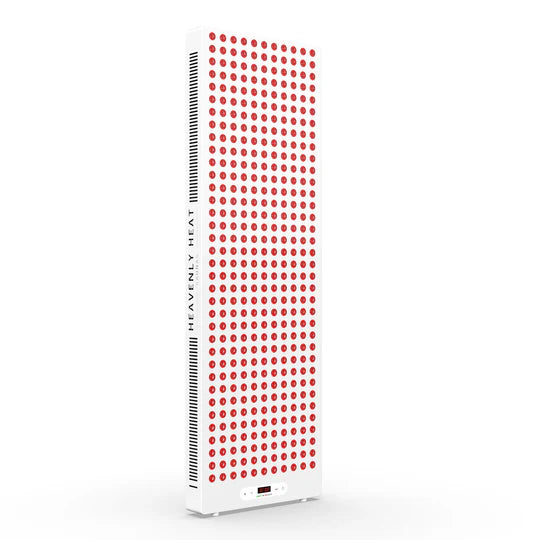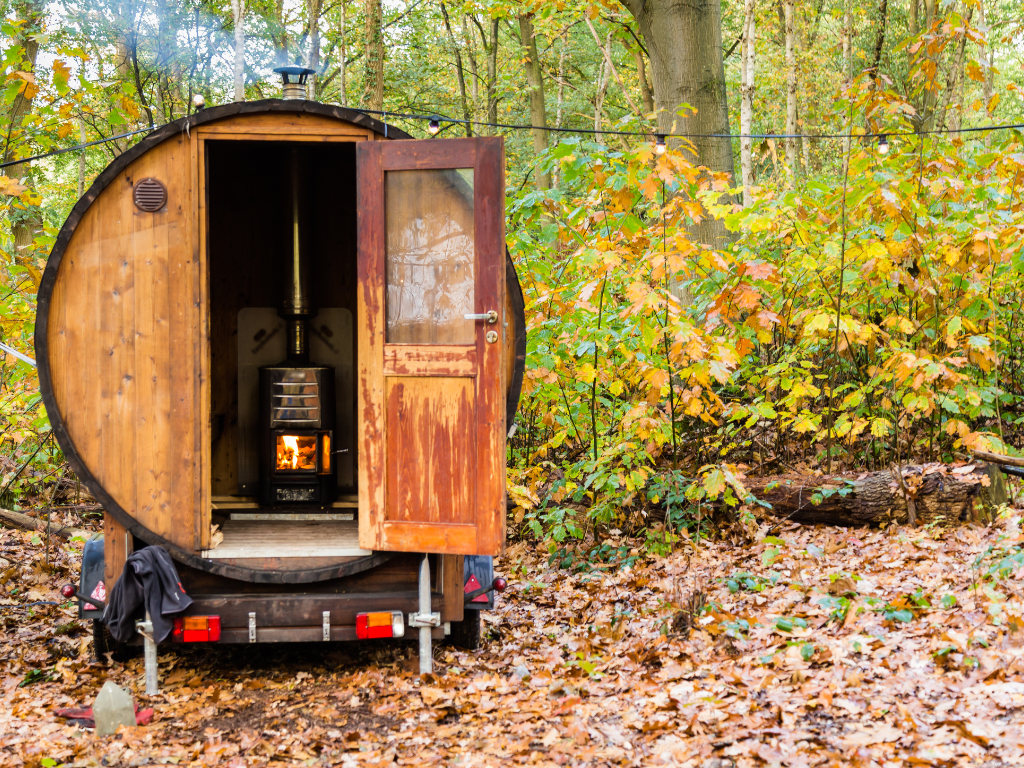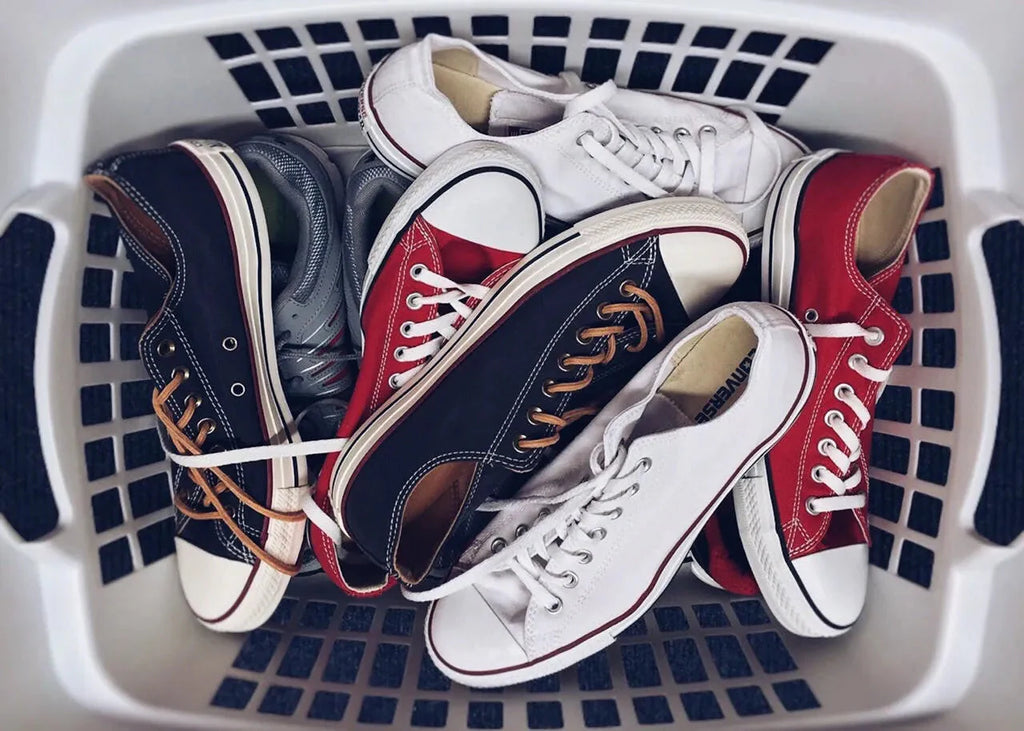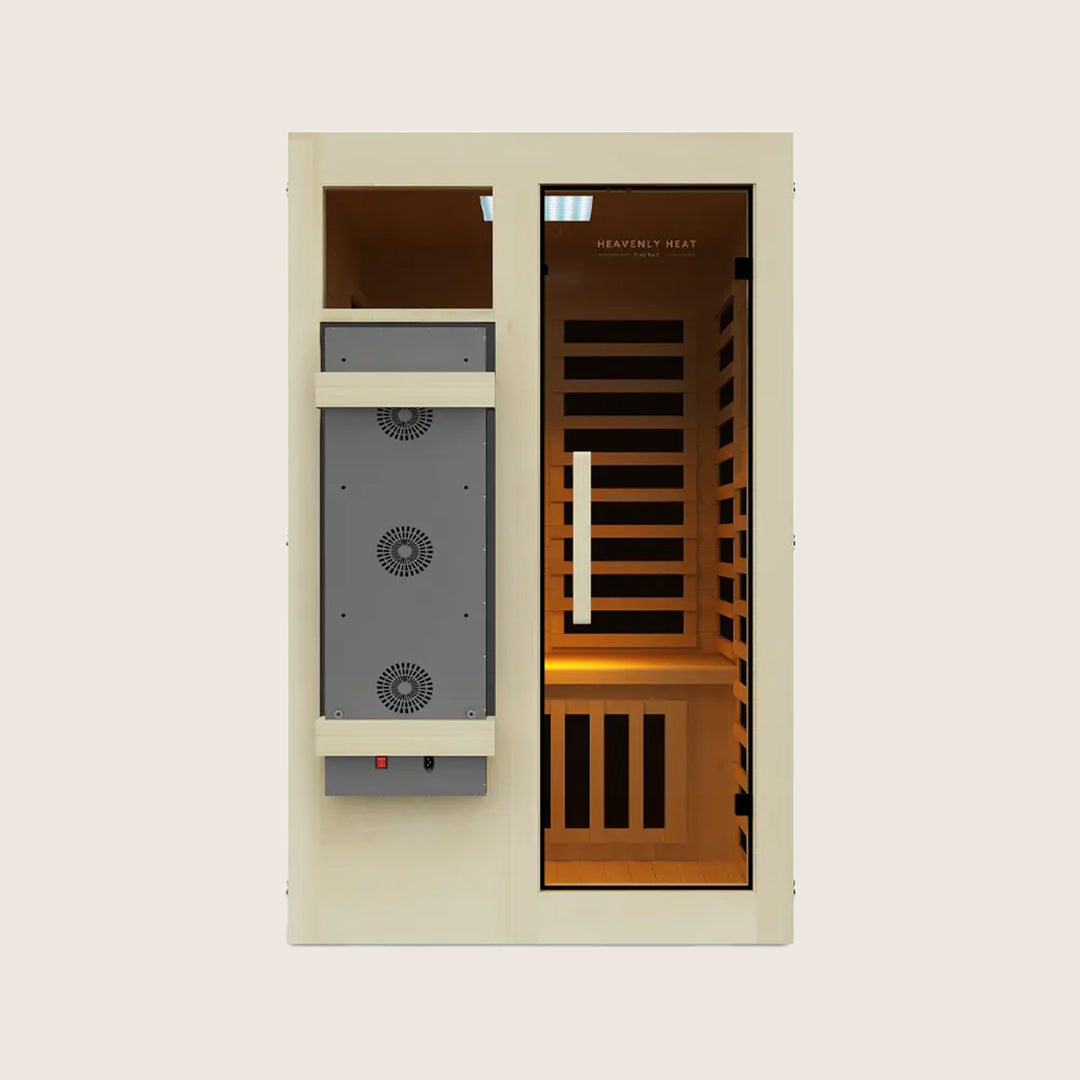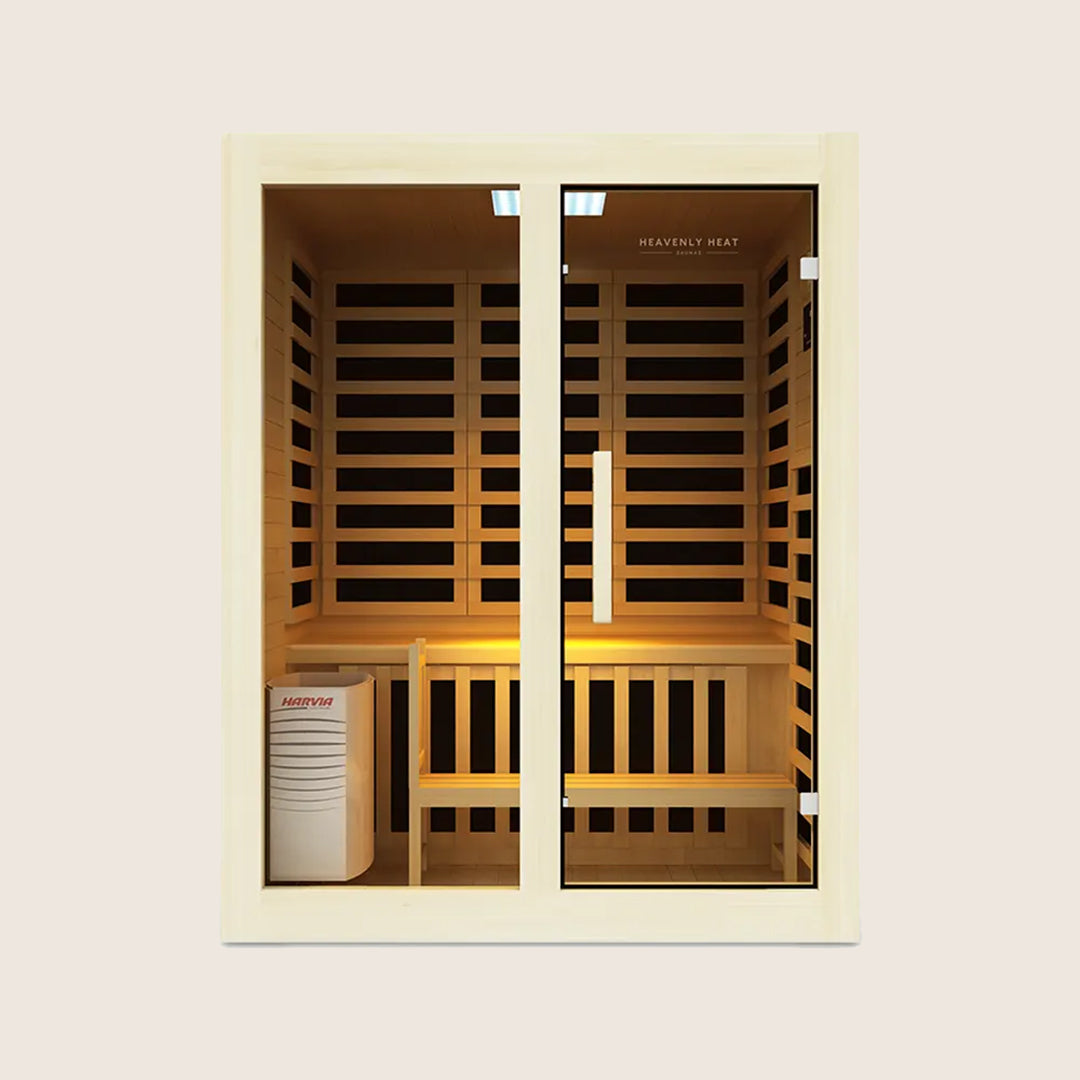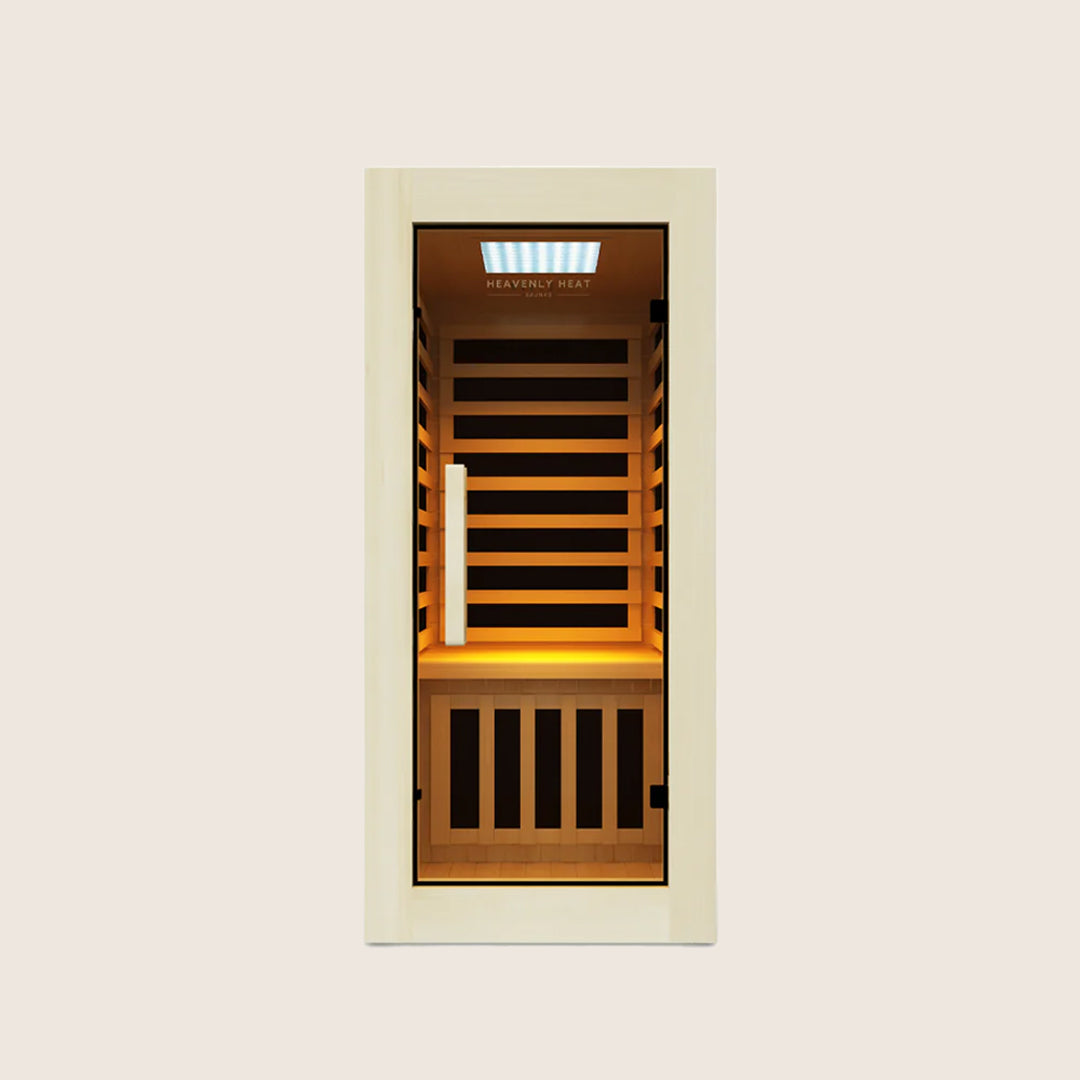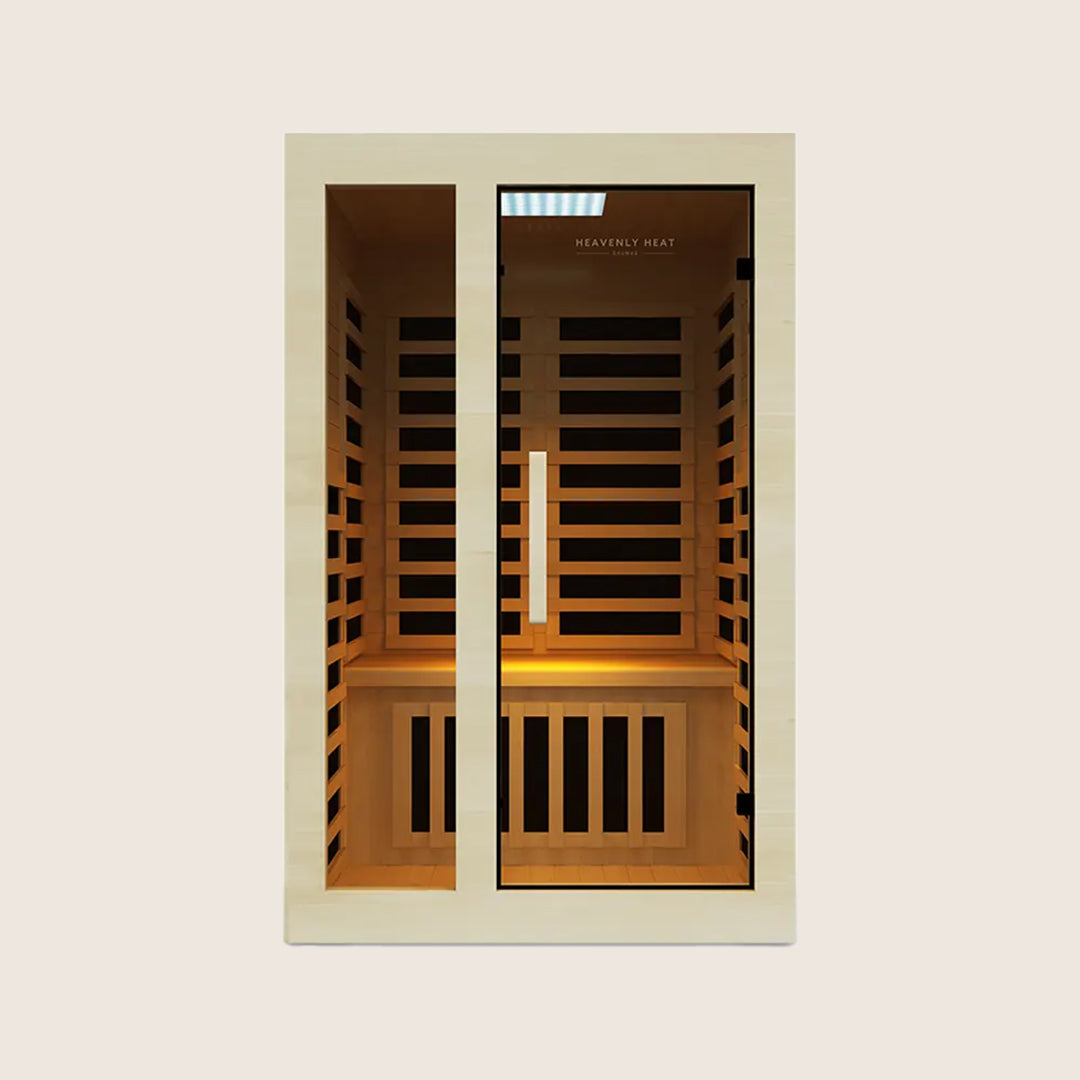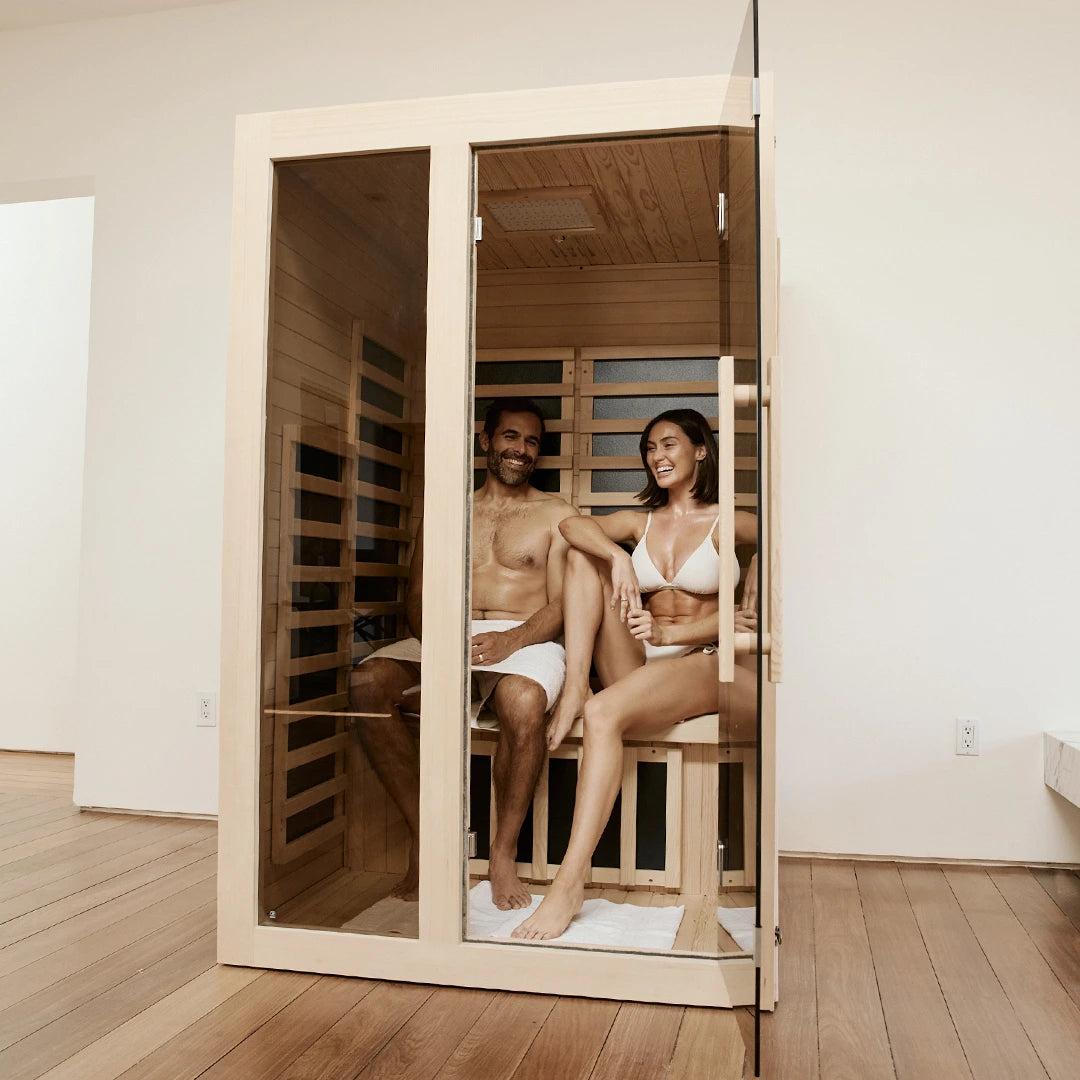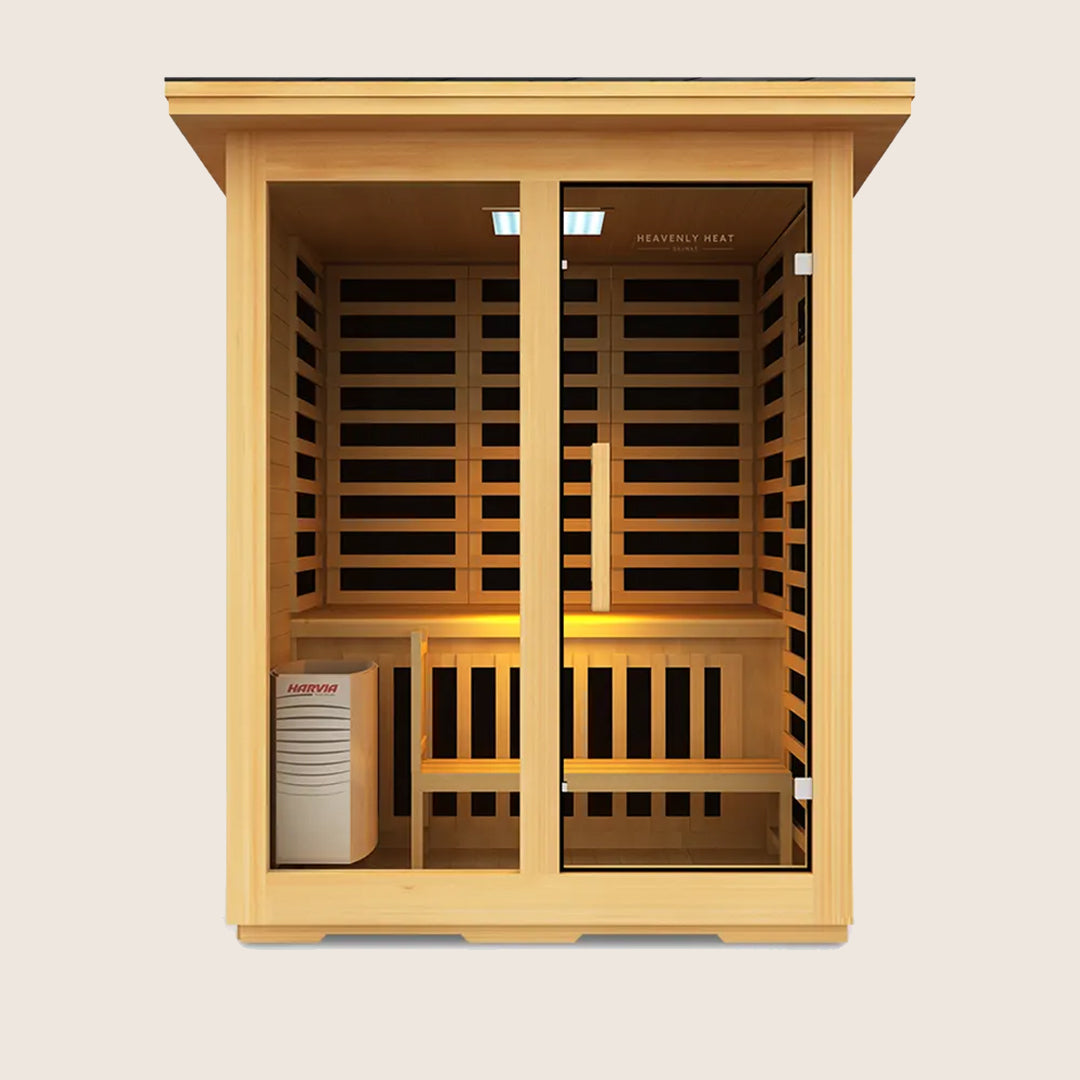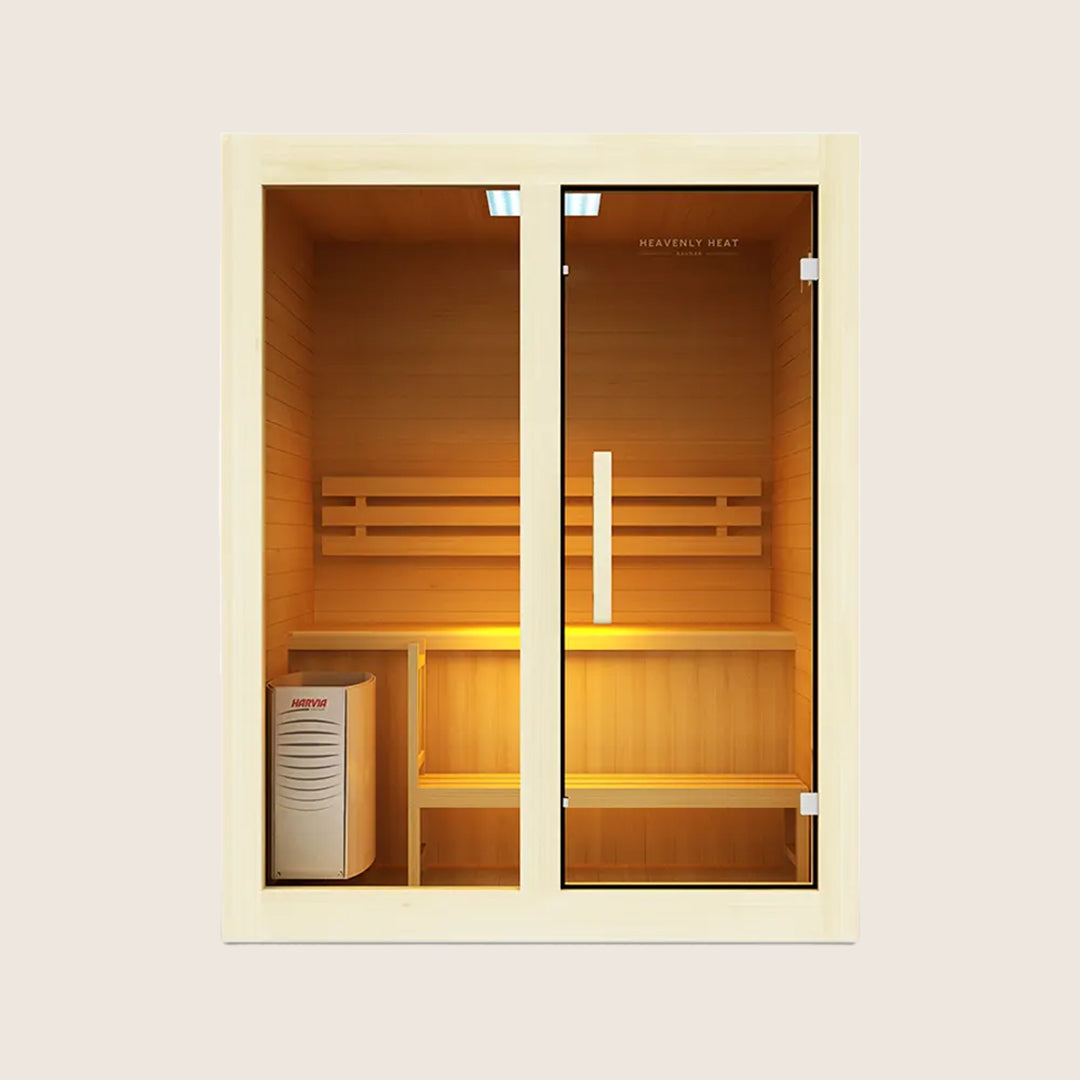Pros and Cons of Using a Sauna While Fasting

Feeling unsure about whether to combine sauna sessions with fasting? This uncertainty can lead to ineffective fasting and potential health risks. Understanding both the benefits and dangers is crucial. Discover how to safely enjoy sauna benefits while fasting.
Can you sauna while fasting?
- Sauna and Fasting: A Risk of Dehydration: Yes, you can use a sauna while fasting, but it comes with a notable risk of dehydration. The heat in the sauna causes you to sweat, which leads to fluid loss, and fasting already makes you more prone to dehydration. The combination of both could lead to dangerous consequences if not carefully managed.
- Fasting and Low Blood Pressure: A Double Effect: A 2020 study highlighted that fasting significantly lowers blood pressure. When combined with sauna use, which also lowers blood pressure , these effects can be amplified. This compounded decrease in blood pressure could leave you feeling lightheaded or dizzy, especially if you're not careful with hydration.
- Early Warning Signs of Dehydration: Fasting makes you more sensitive to dehydration, and when you add sauna use into the mix, early symptoms can appear more quickly. You may experience a dry mouth, fatigue, and difficulty focusing, signs that indicate dehydration is already setting in, and you may need to take immediate action.
- Managing Hydration Is Key: If you choose to sauna while fasting, staying hydrated is crucial. Drink plenty of water before and after the sauna session, and avoid staying too long in the heat. Recognizing your body’s warning signs and acting accordingly can help you safely enjoy both fasting and sauna time.

Pros and Cons of Using a Sauna While Fasting
Pros
Better detoxification
Using a sauna is often praised for its detoxification benefits. A recent review of sauna studies from 2018 notes that while the scientific evidence is limited, some research suggests that saunas can help the body eliminate toxins.
When combined with fasting, the detoxification effects might be even more pronounced, potentially enhancing the body’s ability to cleanse itself.
Help in weight loss
- Sauna Sessions Aid in Weight Loss: Using a sauna while fasting helps with weight loss. Studies show that sauna sessions can cause a reduction in body weight, with men losing 1.8% and women losing 1.4% after three 20-minute sauna sessions.
- Weight Loss from Water, Not Fat: The weight loss during sauna sessions is mainly due to water leaving the body, not fat or muscle loss. This means the weight lost is temporary and can be regained after rehydrating.
- Intermittent Fasting Supports Weight Loss: Intermittent fasting, like the 5:2 diet , helps with weight loss by reducing calorie intake on certain days. This method creates a calorie deficit, which leads to weight loss over time.
- Sauna and Fasting Together Boost Weight Loss: Combining sauna use with fasting can enhance the effects of weight loss. The sauna's heat and the calorie restriction from fasting work together to help you lose more weight.

Increased the cardiovascular benefits of fasting
- Fasting Improves Heart Health and Reduces Inflammation: Using a sauna while fasting can significantly boost your heart health. Fasting, especially intermittent fasting, helps improve insulin sensitivity, manage blood sugar levels, and lower bad cholesterol (LDL), all of which benefit your cardiovascular system. A 2020 study shows that fasting not only helps with weight loss but also promotes processes like autophagy, which reduces inflammation and blood pressure, offering protection to the heart.
- Saunas Help Your Heart Work Better and Stay Strong: Regular sauna sessions can significantly improve heart health. According to Mayo Clinic Proceedings , sauna bathing improves blood vessel function, reduces artery stiffness, and helps lower blood pressure. This reduces the effort your heart needs to pump blood, decreasing the risk of cardiovascular diseases. A review of sauna studies shows it can enhance circulation, lower heart disease risk, and promote better heart function overall.
- Combining Fasting and Sauna for Maximum Heart Health Boost: When fasting and sauna use are combined, the cardiovascular benefits are amplified, providing a powerful way to improve heart health and overall well-being.
Increased insulin sensitivity
- Fasting and Sauna Both Improve Insulin Sensitivity: Intermittent fasting (IF) and sauna both play a role in increasing insulin sensitivity. A study on early time-restricted feeding (eTRF) showed significant improvements in insulin sensitivity in men with prediabetes, even without weight loss. This combination supports better metabolic health during fasting.
- Sauna Increases Insulin Sensitivity Like Exercise: Regular sauna sessions help boost insulin sensitivity by promoting the production of endothelial nitric oxide synthase , much like the effects of aerobic exercise. When combined with fasting, sauna therapy can further improve insulin sensitivity, contributing to overall better health.
- Heat from Saunas Reduces Inflammation and Speeds Recovery: The heat from saunas can reduce muscle inflammation and aid in recovery. This is especially helpful when paired with fasting and exercise, creating a powerful combination that supports muscle repair and overall health during fasting periods.
Cons
Lower blood pressure
- Sauna Use Can Lower Blood Pressure Significantly: Using a sauna while fasting can cause a notable drop in blood pressure, which may pose risks for some individuals. A study from Thammasat University Hospital found that 2.5% of emergency patients had hypotension, a condition with a high mortality rate of 8-15% . If left untreated, hypotension can lead to shock and other serious complications.
- Fasting Can Contribute to Lower Blood Pressure: Research on fasting and energy-restricted diets has shown significant reductions in both systolic and diastolic blood pressure. These drops make the body more susceptible to low blood pressure during sauna use, increasing the risk of complications.
- Sauna Effects on Blood Pressure Last Long After Use: Sauna use lowers blood pressure by reducing vascular resistance and increasing cardiac output. These effects can last up to 120 minutes after sauna exposure, further contributing to lower blood pressure levels, especially when combined with fasting.
- Waiting After Eating Is Crucial Before Using a Sauna: It’s important to wait at least two hours after eating before using a sauna. Digestion pulls blood toward the stomach, while the heat of the sauna draws it to the skin. This can create a dangerous combination that may cause a significant drop in blood pressure.
- Combining Sauna and Fasting Can Increase Hypotension Risk: When fasting and sauna use are combined, the risk of hypotension and its associated complications increases. Both fasting and sauna use independently lower blood pressure, which can dangerously affect the circulatory system when done together.
Dehydration
- Dehydration Risk During Fasting and Sauna Use: Dehydration is a significant risk when combining fasting and sauna use. Fasting reduces fluid intake, which heightens the risk of dehydration. Everyday Health reports that 518,000 people are hospitalized each year in the US due to dehydration, with 10,000 of those cases resulting in death.
- Impact of Sauna on Body Mass and Dehydration: A study of 674 sedentary students found that body mass index (BMI) correlates with body mass loss (BML) due to thermal stress in a dry sauna. Individuals with higher BMIs experienced more body mass loss and were more dehydrated. This illustrates the increased dehydration risk in people with higher BMI when using a sauna.
- The Double Threat of Fasting and Sauna Use: Fasting and sauna use together create a "double whammy" for dehydration. The combination of these factors can impair the body’s temperature regulation, raising the risk of dangerous overheating, not just dehydration alone.
- Prevention: Staying Hydrated: To lower the risk of dehydration, it’s essential to drink plenty of water before, during, and after sauna sessions. You can also consider drinking herbal teas or beverages containing electrolytes to maintain proper hydration throughout the process.
Lower electrolyte imbalances
- Sauna Use Can Cause Electrolyte Imbalances: Using a sauna while fasting can increase the chances of having electrolyte imbalances. The heat from the sauna combined with dehydration can lead to serious health problems, like rhabdomyolysis, which can harm your muscles and kidneys.
- Case Study Shows Severe Damage from Sauna and Fasting: A 26-year-old mixed martial artist used a sauna for quick weight loss and ended up with life-threatening health issues. He suffered from severe rhabdomyolysis, dangerous electrolyte imbalances, and kidney damage, showing the serious risks of using a sauna while fasting.
- Fasting Already Strains Electrolytes: Fasting can already cause shifts in your electrolyte levels. Studies show that during Ramadan fasting, the body’s sodium and potassium levels increase significantly, putting extra strain on the kidneys and overall health, making electrolyte management even more critical.
- Combining Sauna and Fasting Makes Electrolyte Imbalance Worse: When you combine sauna use with fasting, it can make electrolyte imbalances even worse. Dehydration and the strain on your body are doubled, making it essential to keep a close watch on your electrolytes to avoid serious health issues.
Increase the Risk of Hypoglycemia
- Fasting and Sauna Can Trigger Low Blood Sugar: Using a sauna while fasting increases the risk of hypoglycemia. Fasting alone can make your blood sugar drop due to improved insulin sensitivity . When you add the heat from a sauna, it amplifies this effect, making blood sugar dip even lower.
- Heat Speeds Up Insulin Absorption: High sauna temperatures can cause the body to absorb insulin more quickly. This faster absorption lowers blood sugar levels faster than usual, which is especially risky during a fast when glucose reserves are already low.
- Combined Effect Makes Hypoglycemia More Likely: The combo of fasting and sauna use raises the chance of hypoglycemia. This is a serious concern, especially for those with diabetes or people who are sensitive to blood sugar changes.
- Stay Alert and Monitor Blood Sugar Closely: It’s critical to keep a close eye on blood sugar levels when combining fasting with sauna use. Monitoring helps catch any dangerous dips before symptoms become severe.
- Quick Response Is Key to Safety: If signs of low blood sugar appear, like dizziness, weakness, or sweating, take action fast. Consume 15–20 grams of fast-acting carbohydrates, such as juice or candy, and recheck your levels after 15 minutes to ensure they're stable.
Increase stress hormone levels
- Fasting already pushes your stress hormones up: Fasting naturally increases cortisol, the body’s main stress hormone. A study found that after just 10 days of fasting, cortisol levels went up a lot (Colling et al., 2023).
- Sitting in a sauna also makes cortisol rise: Using a sauna, even without fasting, increases stress hormones. Research from Kukkonen-Harjula & Kauppinen (1988) showed that sauna use leads to higher cortisol levels in the body.
- Doing both together puts your body under more stress: If you fast and also use the sauna, your stress hormone levels can climb even higher. This combined effect puts your body under more pressure than doing either one alone.
- Too much cortisol for too long weakens your body: High cortisol for long periods can cause real health issues. It may lower your immunity and reduce bone strength, making you more likely to get sick or develop weaker bones over time.
What precautions should be taken when using a sauna during a fast?
- Keep sauna sessions short and manageable: When fasting, your body is already under some stress. Limit your sauna time to 10–15 minutes with a temperature range of 150°F to 195°F to avoid overexertion or overheating.
- Watch for warning signs from your body: Dizziness, lightheadedness, or feeling unwell are signs to exit immediately. Fasting reduces your energy reserves, so always listen closely to how your body is responding to the heat.
- Never sauna alone while fasting: Having someone nearby while using a sauna during a fast is crucial. If you suddenly feel faint or need assistance, a companion can help you quickly and safely.
- Prep your body before stepping into the heat: Take a quick shower beforehand to cleanse your skin and signal your body that it’s time to heat up. It’s a simple step that helps you adjust more comfortably.
- Avoid starting both fasting and sauna on the same day: Combining your first day of fasting with a sauna session can be too much. Allow your body to ease into the fast before adding the intensity of sauna heat, to lower the risk of dehydration and electrolyte loss.
- Stay safe and maximize the benefits: With smart precautions, you can enjoy sauna sessions even during a fast. Respect your body’s limits, stay hydrated, and treat the heat as a supportive part of your wellness, not a challenge to conquer.

Conclusion
Sauna and fasting can have many benefits like detoxification, cardiovascular health and insulin sensitivity.
But be aware of the risks like dehydration, low blood pressure, electrolyte imbalance, hypoglycemia and increased stress hormones.
To safely do sauna while fasting, keep sessions short, listen to your body and have someone with you.
Follow these and you can safely incorporate sauna in your fasting routine and maximize the benefits while minimizing the risks.
FAQs
Can sauna use while fasting affect mental clarity or cognitive function?
Using a sauna while fasting can enhance focus and alertness due to increased blood flow and endorphin release. However, prolonged fasting combined with intense heat can lead to brain fog and mental fatigue, especially if dehydration is a factor. Short, well-timed sauna sessions may support brain health over time, but balance is important.
Is it safe to use a sauna while on extended or prolonged fasts (longer than 24–48 hours)?
Using a sauna during an extended fast can be risky. Fasting depletes fluids, and sauna heat may cause dehydration, lower blood pressure, and blood sugar, increasing fainting risks. Sweating also depletes electrolytes, causing imbalances. If you have medical conditions, the risks are higher. Fasting weakens heat tolerance, so prioritize safety.
How does sauna use while fasting affect athletic performance and recovery?
Using a sauna while fasting can impact athletic performance and recovery. Heat adaptation may improve endurance, but strength and power could decline due to low energy. While saunas may reduce muscle soreness, fasting may slow recovery. Dehydration is a risk, affecting performance and healing. Hormone levels like testosterone and growth hormone may fluctuate with mixed effects.
Are there specific populations who should avoid combining sauna use with fasting?
Certain groups, including pregnant women, those with heart conditions, diabetics (especially on insulin), individuals with kidney problems, a history of fainting, or low blood pressure, should avoid using saunas while fasting. The combination can strain the body’s cardiovascular, blood sugar, kidney, and blood pressure systems. Always consult a healthcare professional if unsure.


